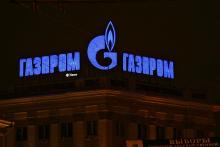Economy of Europe
First payment on Digital Turkish Liras Network executed
Within the scope of the first-phase studies of the Digital Turkish Lira Project, the first payment transactions on the Digital Turkish Lira Network have been successfully executed, the Central Bank said.
The bank said in a statement that it will continue to run the limited, closed-circuit pilot tests with technology stakeholders in the first quarter of 2023.
Downbeat year for Slovenian stocks
The SBI TOP benchmark index on the Ljubljana Stock Exchange lost nearly 16% in 2022, after having risen by almost 40% the year before, show figures released by the stock exchange operator Ljubljanska Borza.
All the big-cap stocks were down with drug maker Krka losing nearly a fifth of its value in a year, NLB bank down by 18%, and energy group Petrol losing 21%.
- Read more about Downbeat year for Slovenian stocks
- Log in to post comments
Germany takes control of Rosneft’s operations
Berlin said on Sept. 16 it had taken control of the German operations of Russia firm Rosneft, which runs several refineries, to secure energy supplies which have been disrupted after Moscow invaded Ukraine.
- Read more about Germany takes control of Rosneft’s operations
- Log in to post comments
Slovenians not as happy with response to Russian aggression as other EU citizens
Brussels – Slovenians are not as supportive of the EU’s and the government’s response to the Russian aggression against Ukraine as most Europeans while they are happier with the state of their national economy than most EU citizens, shows the latest Eurobarometer survey.
Russia: There will be No Gas Supplies via Nord Stream 1 until the West Lifts Sanctions
Gas supplies from Russia to Europe via the Nord Stream 1 gas pipeline will not be fully resumed until the "collective West" lifts the sanctions imposed on Moscow after the start of the invasion of Ukraine. This was announced by Kremlin spokesman Dmitry Peskov, quoted by the "Financial Times".
In Croatia the Prices are already Written in Euros
As of today, all prices in Croatia must be displayed in two currencies - local kunas and euros. This is a preparatory period, from the New Year the national currency will not be used. In the months until the end of the year, Croatians should get used to entering the Eurozone and, as far as possible, fraud and price abuse should be avoided, the government explains.
- Read more about In Croatia the Prices are already Written in Euros
- Log in to post comments
Bulgarian Minister: The Introduction of the Euro will Not Increase Inflation
"The adoption of the euro will not increase inflation further". This was stated by Deputy Prime Minister Atanas Pekanov on the air of BNT.
He noted that the euro is stronger than 10 years ago when we could have seen turmoil. "We don't have that at the moment. We adopted measures to calm the markets. Institutionally, the euro is stronger", Pekanov stressed.
Russia’s Gazprom keeps gas pipeline to Germany switched off
Europe's energy crisis loomed larger on Sept. 2 after Russian energy giant Gazprom said it couldn't resume the supply of natural gas through a major pipeline to Germany for now. The company cited what it said was a need for urgent maintenance work to repair key component- in an announcement made just hours before it had been due to restart deliveries.
"Gazprom" with Record Profits
Russian state-backed energy company Gazprom is ready to pay the Kremlin 2.5 billion rubles after posting record profits.
The company reported a net profit of 2.5 billion rubles for the first six months of this year. Oil and gas prices rose during that period, pushed up by supply concerns following Russia's invasion of Ukraine.
- Read more about "Gazprom" with Record Profits
- Log in to post comments
Bulgaria: "Toplofikatsia Sofia" Owes 399 Million Levs to "Bulgargaz"
"Toplofikatsia Sofia (Heating Systems Sofia) owes BGN 399 million to Bulgargaz," Denitsa Zlateva, executive director of Bulgargaz, announced on BNT.
She reminded that "Bulgargaz" cannot by law stop the supply of gas to heating companies and will seek new loans from the Ministry of Energy.










